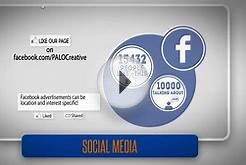 Photo: Getty Images
Photo: Getty Images
Magna Global issued a report on Monday predicting a major upswing of 8.3 percent for U.S. television advertising revenue in 2014, after a dismal 2013 in which revenues were down 0.6 percent. But there's been one significant change: national TV advertising is now smaller than digital media advertising.
The World Cup, local political advertising, and the Olympics are among the factors contributing to the uptick, said Vincent Letang, Magna's evp, director of global forecasting. Letang also predicted serious movement in the global mobile markets, among other trends—including that digital will surpass total TV by 2018.
"National TV benefited from the Olympics in the first quarter. Local TV will gain from political and health-related campaigns throughout the year. Hispanic TV will be boosted by the soccer World Cup, " noted the report. Letang added that "there is really a two-year cycle to television."
"Elections make a huge difference for U.S. television, " he said. "Television is resilient to digital media and [is] still stealing market share from other traditional categories. People are moving money out of print and putting it in digital but still some in television."
But the additions to digital are very significant. Indeed, said Letang, digital media is projected to increase by 15.9 percent globally this year—but only because a comparatively weak increase in nonmobile viewing (where the majority of the money currently is) of 8 percent drags down an incredible 61 percent jump in global mobile ads.
"[Much of this is due to] the amazing success Facebook is having with mobile apps and mobile usage, " said Letang. "In some markets like India for example, mobile is the bulk of all users—the desktop penetration is probably lower in mobile. But you can run Facebook on relatively simple apps on cheap feature phones. So that explains the rise of social in countries without tablet or smartphone penetration." Lower-tech apps, in fact, result in much greater adoption globally.
Regarding the World Cup, Letang said the contest is "bigger than it's ever been because it's Brazil, so it's raising the interest of even casual viewers who wouldn't necessarily be soccer fans." Though Letang admits that the contest is "optimized for Western Europe, " he thinks it's going to be bigger every cycle, and global brands are taking notice. "It's probably helping digital media monetization, " Letang said. "It's not only about TV these days; it's about social and online video replays. It's about multiple viewings."
A few bullet points from the U.S. section of the report:
- Digital media advertising revenue grew by +17% in 2013 to $43 billion.
- Within digital, mobile-based ad sales grew by +110% (vs. +8% for desktop-based advertising) to reach 17% of total digital media revenue.
- Social media advertising grew by +53% to $3.6 billion.
- With a 27% market share in 2013, digital media is now bigger than national TV, but still significantly smaller than television as a whole (TV commands 40% market share).
- Digital media advertising sales are expected to to increase by +14.4% in 2014 and ultimately surpass total television by 2018. Print advertising will continue to decrease by approximately -7%, while radio revenues will be flat and outdoor media will grow by +3.7%.








 VSA Partners is an independent branding firm. VSA Partners is headquartered in Chicago, IL with offices in Minneapolis, MN and New York, NY. The firm was founded in 1982 by Robert Vogele as Communication Design Group. Clients include IBM, Harley-Davidson, GE, Nike...
VSA Partners is an independent branding firm. VSA Partners is headquartered in Chicago, IL with offices in Minneapolis, MN and New York, NY. The firm was founded in 1982 by Robert Vogele as Communication Design Group. Clients include IBM, Harley-Davidson, GE, Nike...